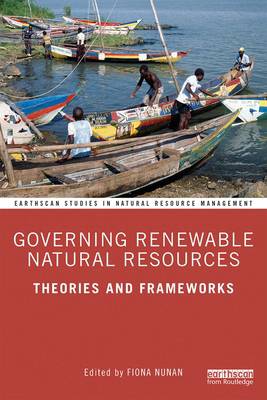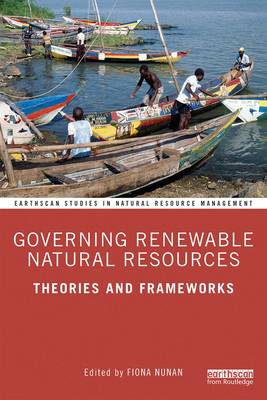
- Retrait gratuit dans votre magasin Club
- 7.000.000 titres dans notre catalogue
- Payer en toute sécurité
- Toujours un magasin près de chez vous
- Retrait gratuit dans votre magasin Club
- 7.000.0000 titres dans notre catalogue
- Payer en toute sécurité
- Toujours un magasin près de chez vous
Governing Renewable Natural Resources
Theories and Frameworks
Description
In one volume, this book brings together a diversity of approaches, theory and frameworks that can be used to analyse the governance of renewable natural resources.
Renewable natural resources are under pressure, with over-exploitation and degradation raising concern globally. Understanding governance systems and practice is essential for developing effective and fair solutions. This book introduces readers to key concepts and issues concerned with the governance of renewable natural resources and illustrates the diversity of approaches, theories and frameworks that have been used to analyse governance systems and practice. Each chapter provides an introduction to an area of literature and theory and demonstrates application through a case study. The book covers a range of geographical locations, with a focus on low- and middle-income countries, and several types of natural resources. The approaches and theories introduced include common property theory, political ecology, institutional analysis, the social -ecological systems framework and social network analysis. Findings from across the chapters support an analytical focus on institutions and local context and a practical focus on diverse, flexible and inclusive governance solutions.
The book serves as an essential introduction to the governance of renewable natural resources for students, researchers and practitioners.
Spécifications
Parties prenantes
- Editeur:
Contenu
- Nombre de pages :
- 252
- Langue:
- Anglais
- Collection :
Caractéristiques
- EAN:
- 9780367146696
- Date de parution :
- 04-12-19
- Format:
- Livre relié
- Format numérique:
- Genaaid
- Dimensions :
- 155 mm x 236 mm
- Poids :
- 521 g

Les avis
Nous publions uniquement les avis qui respectent les conditions requises. Consultez nos conditions pour les avis.





